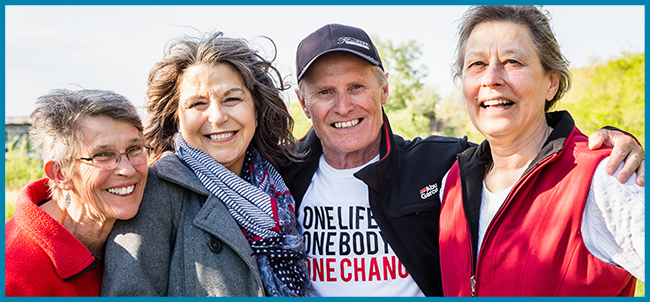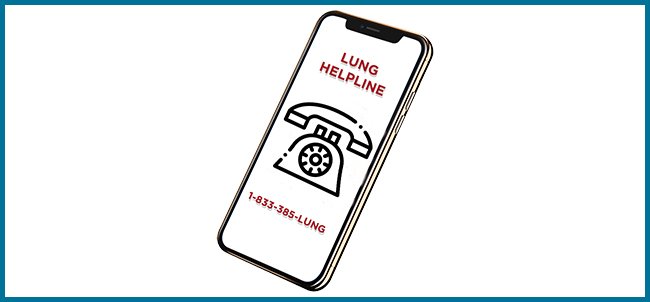RSV (Respiratory Syncytial Virus)
About RSV
RSV is an infection that causes inflammation of the small airways in the lungs. It usually causes mild cold-like symptoms but can cause a serious lung infection in young children and infants called bronchiolitis.
Most children become infected with the virus by the age of 2 to 3 years old. Although all individuals can be infected with RSV, those at high risk include premature infants, young children, the elderly, immunocompromised, and children under age 2 with chronic lung conditions. The virus is most common in fall, winter, and early spring.
What causes RSV?
RSV is a virus that spreads like the common cold. You can get it by being in contact with someone who is infected with the virus.
Is RSV contagious?
Yes. RSV is easy to catch and spread to other people.
RSV spreads when people come into direct contact with infectious particles. Most often, the virus spreads from sneezes or coughs from sick individuals or by touching surfaces contaminated with the virus and then touching your mouth, nose, and eyes before washing your hands. RSV can survive for many hours on hard surfaces such as tables and doorknobs and up to 30 minutes on your hands. Individuals that have RSV are usually contagious for 3 to 8 days, although those with weakened immune systems can be contagious for up to 4 weeks even without showing symptoms. You can be infected with RSV multiple times as you do not build immunity when you have RSV.
Diagnosis
Your doctor will ask you about your symptoms, provide a medical history, and for those with a severe infection a physical exam, nose or throat swabs, lung assessments, chest x-ray, blood tests, or urine samples may be completed. Most people recover without these exams.
Signs and Symptoms
Signs and symptoms of an RSV infection will usually start 4 to 6 days after being infected. Some of the symptoms can include:
- Runny nose
- Decreased appetite
- Cough
- Sneezing
- Fever
- Wheezing (high-pitched whistling sound made while breathing)
- Poor sleep
- Fussiness (infants and toddlers)
Children with worsening symptoms should be seen immediately in the emergency room and may need to stay in the hospital for observation and care.
Call 911 or go to your nearest emergency department if your child is experiencing any of the following:
- Audible wheezing sounds
- Breathing very fast and shallow — more than 60 breaths a minute
- Laboured breathing — the ribs seem to suck inward when the infant inhales
- Nostrils flaring
- Very tired or lethargic, and not as responsive
- Refusing to drink or eat, or breathing too fast to eat or drink
- Blue skin, especially the lips and fingernails
Treatment
There are specific treatments for RSV. Most infections go away on their own in one to two weeks. Severe RSV that causes hospitalizations may require support for intravenous (IV) fluids, a breathing machine, and oxygen. Antiviral medications may be used in the treatment of some patients with severe cases in the hospital.
At home treatments may include:
- Drinking plenty of water
- Resting at home to prevent spreading of the virus
- Saline nasal drops, rinses, or suctioning to clear the nose
- Inhaling steam or mist from a humidifier or shower to relieve congestion
- Over-the-counter medications to relieve symptoms. Talk to your pharmacist to see which might work best for you or your child.
- Decongestants: can help open up a clogged nose or sinuses
- Antihistamines: may help dry a runny nose
- Fever and pain relievers: ibuprofen (Advil) or acetaminophen (Tylenol) to relieve aches and pains and reduce fever
- Cough syrups: may make coughing easier by thinning secretions and loosening mucus (expectorants) or may suppress cough (suppressants)
Medication contraindications in children:
- Most decongestants are not suitable for children under 6 years old.
- No antihistamines should not be given to children under 2 years old.
- Aspirin is not recommended for children under 12 because it increases the risk of Reye syndrome, which is a rare but life-threatening disorder.
How is RSV Prevented?
You can reduce the chances of getting the virus by:
- Washing your hands often: One of the best preventive measures against viruses and other germs is practicing good hand hygiene. Because many viruses are spread through contact with the droplets of an infected person, washing your hands frequently with soap and water for at least 20 seconds is helpful to prevent catching a virus, as RSV can survive 30 mins or more on unwashed hands.
- Disinfect commonly touched surfaces: It is recommended to clean all shared items and surfaces with disinfectants often to reduce the spread of the virus, as RSV can survive up to 6 hrs on objects, such as toys.
- Keep your distance: If you have the parainfluenza virus, it is best to stay home so you don’t get others sick. At home, try to keep your distance from other members of the household. When possible, if you are sick sleep in a separate room. Keep infants who are sick away from any with the virus, due to their lowered ability to fight off germs. Limit exposure to large crowds as well.
- Follow coughing and sneezing etiquette:
- Sneeze and cough into a tissue and then throw it into the trash. If you do not have any tissues, cough or sneeze on the inside of your elbow, not your hands. After touching your nose or mouth you immediately wash your hands.
- Getting an RSV Vaccine
- AREXVY is an RSV vaccine for adults 50 years of age and older with chronic conditions or for all adults 60 years of age and older.
- ABRYSVO™ is an RSV vaccine for pregnant individuals (32– 36 weeks gestation) to protect their infants from birth through 6 months of age, and adults 60 years of age and older.
- mRESVIA™ is an RSV vaccine for adults 60 years of age and older.
Learn More about RSV
Tune into our Lung Lesson’s Podcast episode one on RSV and You with Dr. Alexander Wong.
RSV and Lung Disease
Bronchiolitis:
RSV infection can lead to a more severe infection called bronchiolitis. Bronchiolitis is swelling and congestion in the small airways (bronchioles) of the lung. It is most often caused by RSV but can also be caused from viral infections. Common cold symptoms are often seen first followed by worsening cough, wheeze, and trouble breathing. Most children get better at home but some may require hospitalization.
Asthma:
There may be a link between severe RSV in children and the chance of developing asthma later in life.
Flare-ups of Chronic Lung Diseases:
Viral infections can cause a flare-up or worsening of symptoms for people with lung diseases such as asthma, COPD, and pulmonary fibrosis. Mucous can build up inside the airways causing irritation and worsening symptoms of your lung disease.
If you have asthma, follow the advice in your asthma action plan or your child’s asthma action plan. If you have COPD, follow the advice in your COPD action plan. You may have to take extra medications to control your symptoms. If you do not have an action plan, work with your doctor to create one.
If your symptoms are out of control or you don't know how to treat your lung disease, see your doctor as soon as possible.
Watch for warning signs of severe symptoms as listed above. If you have these warning signs, get emergency help right away. Call your doctor if you are not improving after a few days.
If it's hard to breathe or your rescue medicine isn't working, call 911 or your local emergency number.
Pneumonia:
RSV is the most common cause of pneumonia or swelling and infection of the lower lungs in infants. Infants, young children, older adults, immunocompromised individuals, or people with chronic heart or lung disease are all at risk of developing pneumonia.
Middle ear infections:
If the virus enters the space behind the eardrum, you can get a middle ear infection (otitis media). This happens most often in infants and young children.
Am I at risk?
Anyone can get RSV but children are more at risk, especially those who:
- Are 12 weeks old and younger
- Have a weakened immune system due to other illnesses or treatments
- Having siblings
- Attend daycares and or nurseries
- Have mothers who smoked during pregnancy
- Are exposed to second-hand smoke
- Have a history of allergies or eczema
- Live in crowded homes
Others at higher risk include:
- Older adults suffering from lung or heart disease, such as asthma, congestive heart failure, or chronic obstructive pulmonary disease (COPD).
- People who are immunocompromised, such as organ transplant recipients, chemotherapy patients or HIV/AIDS patients.
Saskatchewan Vaccination
Funding for RSV vaccines varies across Canada. In Saskatchewan it is NOT presently publicly funded. This may be covered by private health insurance. Speak to your doctor, pharmacist or nurse practitioner to get a RSV vaccine.





